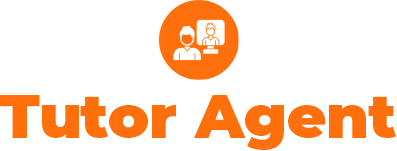Tutoring sessions play a pivotal role in shaping a student’s academic journey, but they can also serve as a gateway to future career success. In this guide, we’ll explore how tutors can strategically plan sessions to equip students with essential skills and knowledge for career readiness. From honing professional skills to guiding career paths, our approach aims to empower students beyond the classroom.

Identify Career Goals and Interests
Start by engaging students in discussions about their career aspirations and interests. Understanding their goals helps tailor tutoring sessions to align with specific career paths. Whether it’s exploring STEM fields, humanities, or vocational pursuits, this initial step sets the foundation for personalized guidance.
Incorporate Skill-Building Activities
Integrate skill-building activities into tutoring sessions to enhance students’ professional skill sets. Focus on crucial skills such as effective communication, problem-solving, time management, and collaboration. These skills are universally valuable and can significantly contribute to career success.
Resume Building and Cover Letter Writing
Devote sessions to guiding students through the intricacies of resume building and cover letter writing. Provide insights into crafting compelling documents that highlight academic achievements, extracurricular activities, and relevant skills. A well-crafted resume is an essential tool for career readiness.
Mock Interviews for Confidence Building
Conduct mock interviews to help students build confidence in professional settings. Simulating real interview scenarios allows them to practice articulating their achievements and goals. Offer constructive feedback on communication skills, body language, and overall interview performance.
Explore Career Pathways
Dedicate sessions to exploring various career pathways and industries. Discuss the educational requirements, potential job roles, and growth opportunities within different fields. Providing a broad perspective enables students to make informed decisions about their future careers.
Introduce Networking Skills
Guide students in developing networking skills, a crucial aspect of career readiness. Offer tips on creating a professional online presence, utilizing platforms like LinkedIn, and fostering meaningful connections within their areas of interest. Networking opens doors to mentorship and potential career opportunities.
Guest Speakers and Industry Insights
Arrange for guest speakers or industry professionals to share insights during tutoring sessions. Exposure to real-world experiences and advice from professionals can provide invaluable perspectives. It also allows students to ask questions and gain a deeper understanding of their chosen career paths.
Explore Educational and Training Options
Help students explore relevant educational and training options to align with their career goals. This may include discussing college programs, vocational training, or online courses. Provide information on scholarships, grants, and financial aid options to support their educational pursuits.
Soft Skills Development
Emphasize the importance of soft skills, such as adaptability, emotional intelligence, and leadership. Incorporate activities that nurture these skills during tutoring sessions.
Create Personalized Learning Plans
Tailor tutoring sessions to create personalized learning plans that align with each student’s unique career goals. Address specific academic areas that require improvement for their chosen career path. This customized approach ensures that tutoring is directly contributing to their future success.
Encourage Goal Setting
Foster a culture of goal setting within tutoring sessions. Guide students in setting short-term and long-term career goals, breaking them down into achievable milestones. Regularly revisit and revise these goals to reflect evolving interests and aspirations.
Utilize Career Assessment Tools
Integrate career assessment tools to help students identify their strengths, interests, and potential career matches. These tools provide valuable insights that can guide discussions on suitable career paths, ensuring alignment with their skills and preferences.
Provide Resources for Self-Exploration
Equip students with resources for self-exploration, including books, websites, and online courses related to various career fields. Encourage independent research and exploration to deepen their understanding of potential careers.
Conclusion
Tutoring sessions designed for career readiness extend beyond academic support, offering students the guidance and skills necessary for a successful future. By incorporating skill-building activities, exploring diverse career paths, and fostering soft skills development, tutors play a crucial role in shaping well-rounded individuals prepared to navigate the professional landscape. Through these intentional efforts, tutoring becomes a transformative journey that propels students toward fulfilling and meaningful careers.




